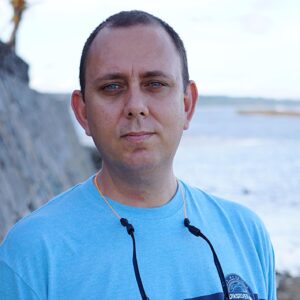
His research has used in innovative ways the knowledge of fishers to overcome data gaps that prevent conservation of tropical fisheries. Early in his career, he developed a method for fishers to census populations of endangered fishes, and this led to multiple population recoveries. Recently, he assessed an approach that uses the memories of fishers of past events to reconstruct historical timeseries of fish catch. Results show fishers’ recalls up to four decades in the past are >95% accurate relative to scientific data but cost only a fraction of it.
His research has also assessed human impacts on freshwater ecosystems of the Amazon Basin and showed they are largely vulnerable to hydrological alterations caused by dams, pollution, and deforestation. Results from that assessment shaped the policy strategy of the World Wide Fund for Nature (WWF) in all seven nations of the Basin.
His research assessed and quantified the effects of large-scale processes such as deforestation and climate change on river fish catch. Results from those studies unraveled the ecological processes linking fish catch to natural river hydrology and floodplain cover, with direct implications to fisheries sustainability in large rivers of the tropical developing world (e.g., Congo, Mekong).
In 2017, Castello was awarded the Pew Marine Fellowship to develop a method to use fishers’ memories of past fishing activities to produce historical time-series of catch-effort data.
Leandro teaches Fisheries Techniques and Systems Ecology and Conservation in the Department of Fish and Wildlife Conservation at Virginia Tech; he is a faculty member in the Global Change Center.
